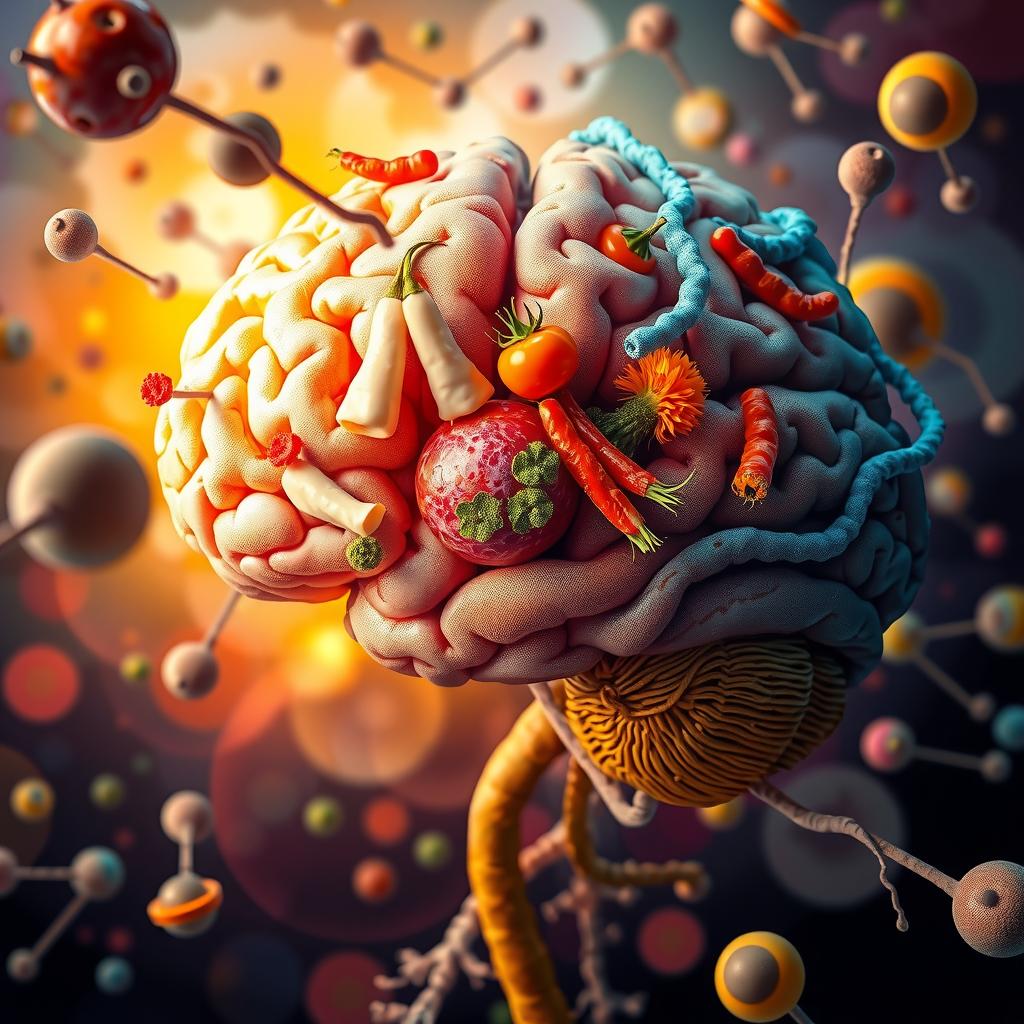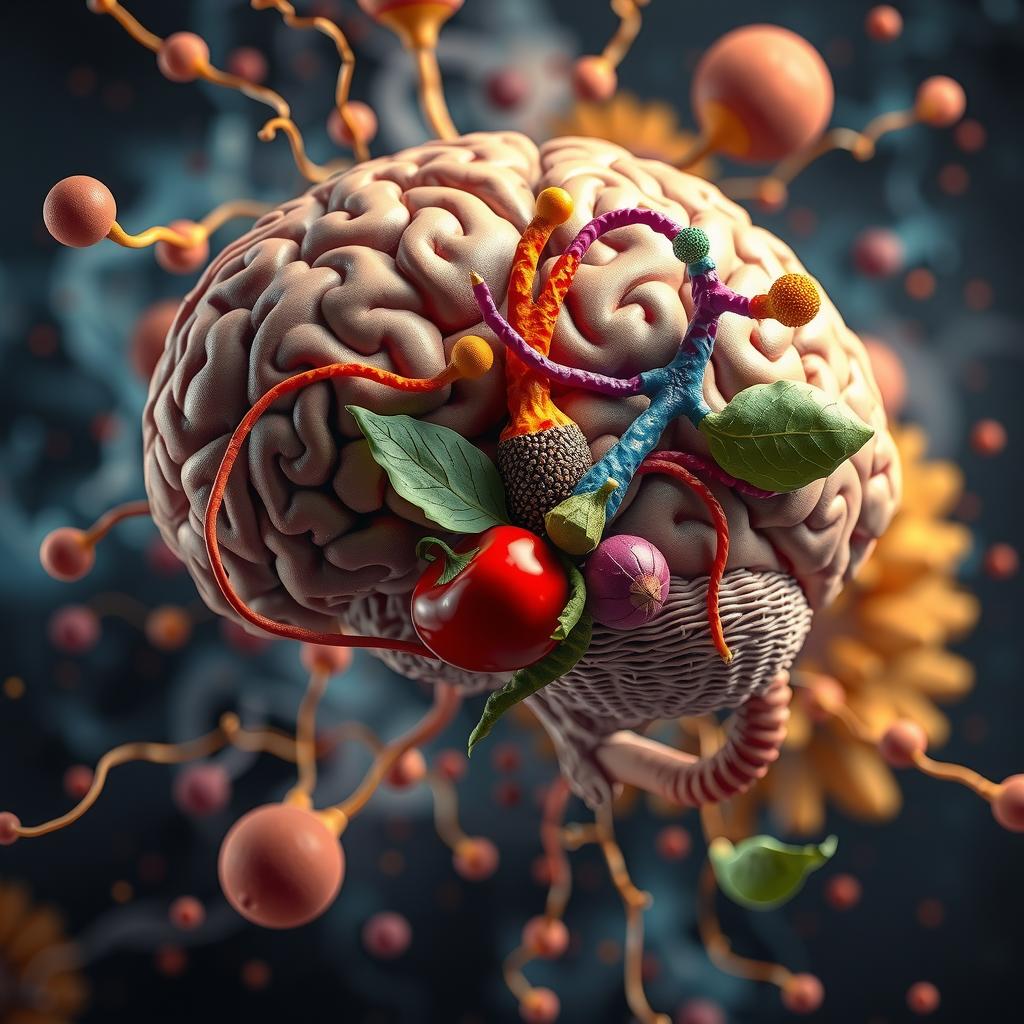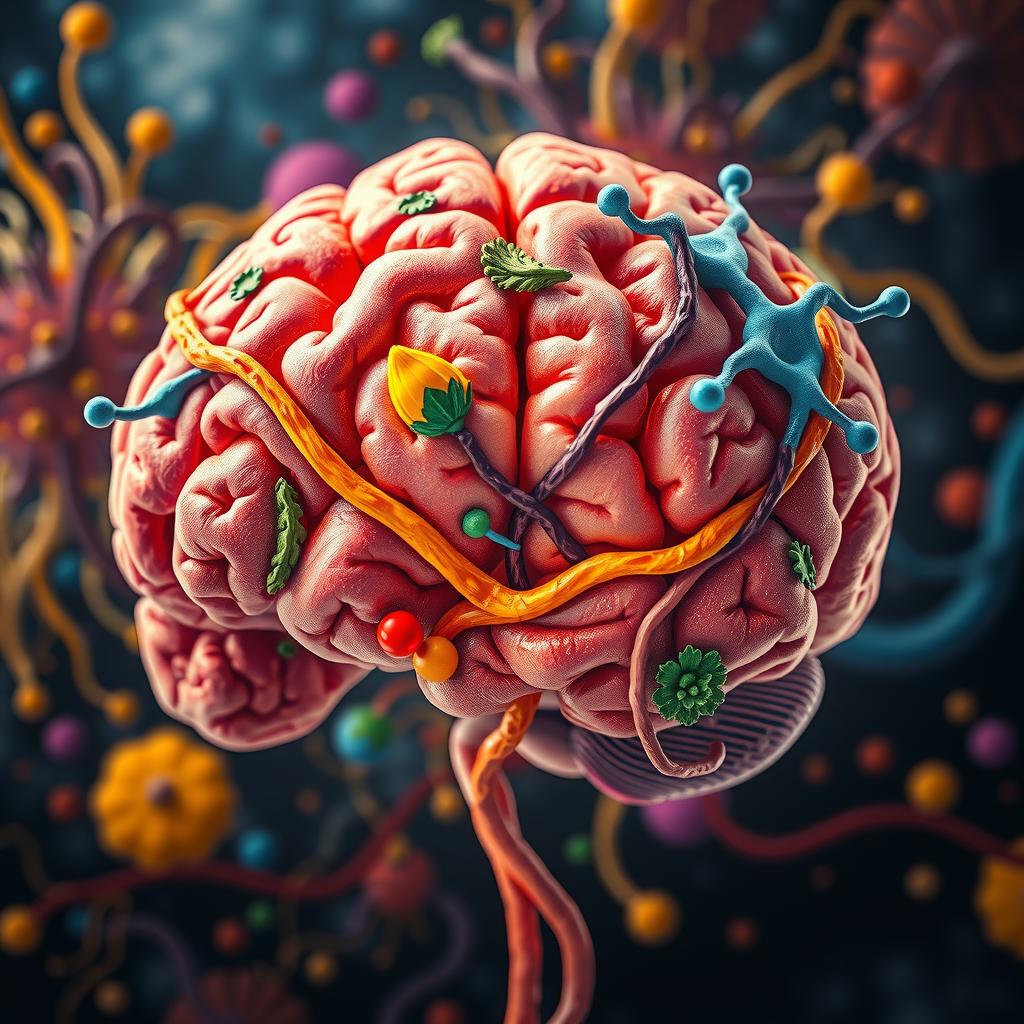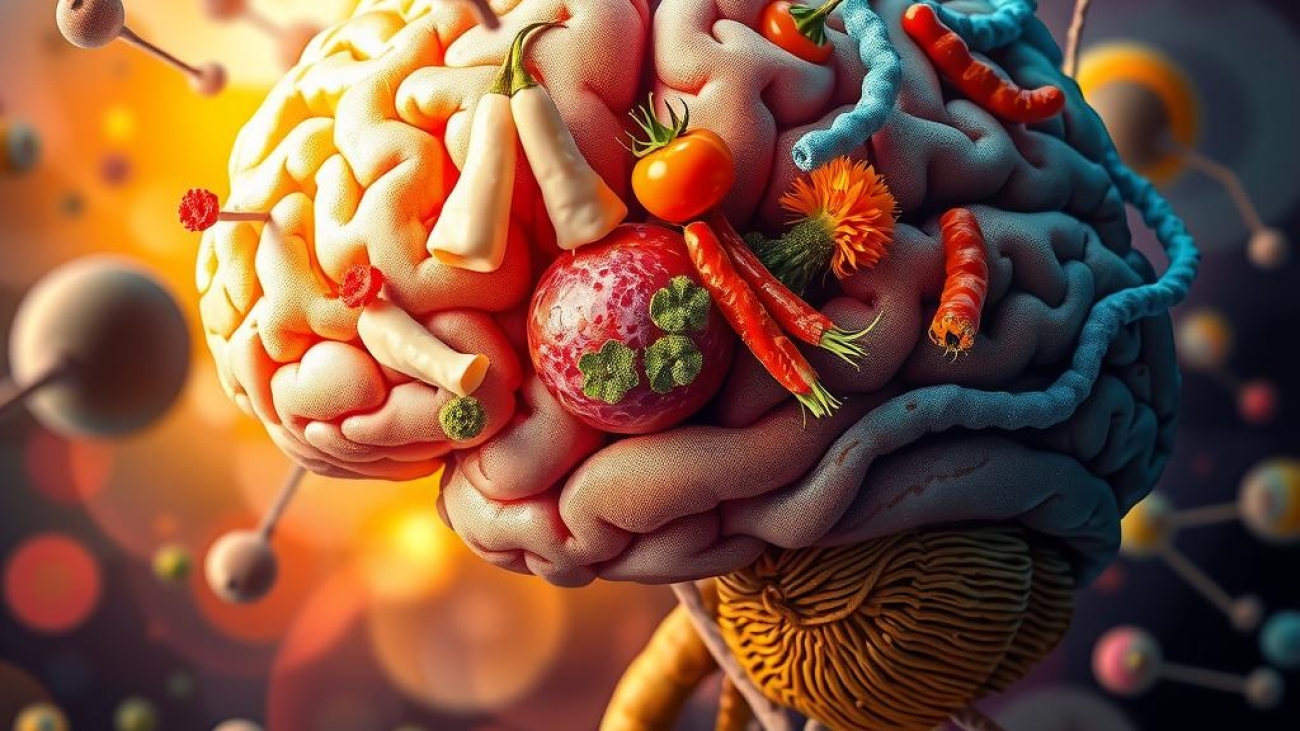In recent years, a growing body of research has illuminated the intricate relationship between the gut and the brain, revealing that the gut-brain connection plays a pivotal role in influencing mental health, particularly regarding conditions such as depression. This burgeoning field of study not only captivates scientists but also raises critical questions for individuals seeking deeper understanding and potential solutions for their emotional well-being. As many grapple with feelings of anxiety and despair, it becomes increasingly essential to explore how gut microbiome composition may significantly impact one’s psychological state—potentially offering new avenues for effective anxiety treatment.
Delving into this complex interplay uncovers fascinating insights: emerging evidence suggests that imbalances within the gut microbiota can lead to alterations in brain function, thereby affecting mood regulation and cognitive processes. The implications are profound; if certain strains of bacteria can enhance or diminish feelings of happiness or sadness, then fostering a healthy gut environment might be key to promoting overall psychological well-being. Research indicates that lifestyle choices impacting diet and probiotic intake could harness these connections to alleviate symptoms associated with depression.
Moreover, understanding this link invites exploration into holistic approaches towards mental health care. Rather than solely depending on traditional medications or therapies—though they remain vital components—the integration of dietary adjustments focusing on nurturing the gut may serve as an adjunct strategy for those suffering from emotional distress. By emphasizing preventative measures rooted in nutrition alongside conventional treatments, individuals could potentially unlock pathways toward enhanced mental resilience.
As more studies emerge detailing these correlations between our digestive systems and mental states, readers are encouraged to consider how simple changes might yield substantial benefits in their own lives. The latest findings underscore not only the importance of maintaining proper gut health but highlight its critical role in shaping one’s emotional landscape—a revelation that urges further investigation into practical applications within everyday routines. Thus begins an exploration into cutting-edge discoveries surrounding the latest research on the gut-brain connection and its implications for combating depression, inviting both skeptics and advocates alike to engage with this transformative dialogue about future possibilities in enhancing life quality through mindful practices targeting both mind and body.

Key Takeaways:
-
Understanding the Gut-Brain Connection: The intricate relationship between the gut microbiome and mental health has gained significant attention in recent years. Research suggests that imbalances in gut bacteria may influence emotional health, contributing to conditions like depression and anxiety. This connection emphasizes the importance of considering dietary choices as part of a holistic approach to mental wellness.
-
Impact on Brain Function and Mood Regulation: Emerging studies highlight that specific strains of beneficial bacteria can enhance brain function, potentially improving mood and alleviating symptoms associated with anxiety disorders. By nurturing a healthy gut microbiome, individuals may find innovative ways to manage their emotional well-being, shifting focus towards preventive measures alongside traditional anxiety treatment strategies.
-
Holistic Approaches to Mental Health: As discussions around mental health evolve, there is an increasing recognition of how lifestyle factors—particularly diet—intersect with psychological care. Understanding the role of nutrition in influencing both physical health and psychological well-being invites individuals to explore natural means for enhancing their overall resilience against stressors linked to depression research. This evolving landscape encourages mindfulness toward one’s unique microbiome as a pathway toward improved mental health solutions.

Understanding the Gut-Brain Connection: The Role of Microbiome in Mental Health
The intricate relationship between the gut and brain, often referred to as the gut-brain connection, has garnered significant attention in recent years, particularly within depression research. Emerging studies indicate that the composition of our gut microbiome—a vast community of microorganisms residing in our intestines—plays a pivotal role in shaping not only physical health but also psychological well-being. It is increasingly evident that these gut bacteria can influence emotional states, contributing to conditions such as anxiety and depression. Researchers have discovered that certain strains of beneficial bacteria are linked with improved mood regulation and cognitive function, highlighting their potential impact on mental health.
For instance, individuals with a diverse and balanced gut microbiome tend to exhibit better emotional health compared to those with dysbiosis—a microbial imbalance often associated with various mental disorders. This imbalance may lead to increased inflammation or altered neurotransmitter levels, which could exacerbate feelings of anxiety or depressive symptoms. Moreover, specific metabolites produced by gut bacteria are known to affect brain function directly through pathways involving neural signaling molecules like serotonin—the “feel-good” hormone—which is predominantly produced in the gastrointestinal tract.
Furthermore, recent findings suggest that dietary interventions aimed at enhancing microbiome diversity can serve as effective strategies for improving one’s emotional landscape. Consuming foods rich in fiber and probiotics not only nourishes beneficial bacteria but may also mitigate symptoms related to anxiety treatment by fostering an environment conducive to optimal brain-gut communication. With this burgeoning understanding of how our internal ecosystem influences mood regulation and stress response mechanisms, it becomes clear that addressing the gut microbiome might be a critical component in holistic approaches toward managing mental health challenges.
As researchers continue exploring this dynamic interplay between diet, gut flora, and psychological resilience, it opens new avenues for therapeutic interventions aimed at promoting overall wellness through enhanced emotional health. By delving deeper into how crucial aspects of nutrition shape our internal milieu—and consequently influence mental clarity—it becomes possible to develop personalized treatment plans tailored specifically for individuals struggling with various forms of anxiety or depression.
In summary, recognizing the profound impact of our gut’s inhabitants on both brain chemistry and emotional states underscores the necessity for further exploration into integrative approaches surrounding mental health care. As science continues unraveling these connections within human physiology—especially regarding how lifestyle choices affect one’s psychological well-being—the prospects for innovative treatments rooted in nurturing our complex microbial companions become ever more promising.

Nurturing the Gut for Emotional Resilience
Exploring the Connection Between Gut Health and Mood Enhancement
Research has increasingly illuminated the intricate relationship between gut health and emotional well-being, shedding light on how specific strains of beneficial bacteria can enhance mood and bolster resilience against mental health challenges. The gut-brain connection emphasizes that a thriving gut microbiome is essential not only for physical health but also for psychological stability. Strains such as Lactobacillus rhamnosus have shown promise in reducing symptoms of anxiety and depression in various studies, demonstrating their potential role as adjuncts in anxiety treatment protocols. These probiotics facilitate the production of neurotransmitters like serotonin, which plays a pivotal role in regulating mood and emotional states.
Moreover, incorporating fermented foods rich in these beneficial strains—like yogurt, kefir, sauerkraut, or kimchi—can profoundly affect one’s psychological well-being. Nutritionists argue that dietary choices significantly influence brain function; hence adopting a diet abundant in fiber-rich fruits and vegetables supports the growth of healthy bacteria while simultaneously minimizing inflammation linked to mental disorders. In recent years, depression research has highlighted how dietary patterns high in processed foods can adversely impact both physical health and emotional balance.
Additionally, emerging evidence suggests that enhancing one’s diet with prebiotics—non-digestible fibers found in foods such as garlic, onions, and asparagus—can serve as food for good bacteria within the gut environment. This symbiotic relationship underscores an important strategy: nurturing one’s gut could lead to improved overall emotional health by fostering an optimal microbial ecosystem capable of modulating stress responses more effectively.
In conclusion, achieving better mood through nutrition goes beyond simply choosing healthier options; it involves understanding how those choices interact with our body’s complex systems—including our microbiota—and ultimately shaping our emotions. By prioritizing gut-friendly diets filled with diverse probiotic sources along with prebiotic fibers known to promote beneficial bacterial growth while reducing inflammation markers associated with chronic stressors or depressive episodes continues to be vital steps towards enhancing one’s ability to thrive emotionally amidst life’s challenges.
Innovative Strategies for Anxiety Management
A Holistic Perspective on Mental Health Treatment
The treatment of anxiety disorders has traditionally focused on pharmacological and psychological interventions, but recent research is illuminating the benefits of a more holistic wellness framework. By integrating diet, lifestyle modifications, and psychological care, practitioners can create a comprehensive approach that reshapes treatment strategies for mental health. Emerging studies highlight the significance of the gut-brain connection, suggesting that our dietary choices can have profound impacts on emotional health and brain function. The gut microbiome plays a crucial role in regulating neurotransmitters like serotonin, which are vital for maintaining stable mood levels. Consequently, incorporating nutrition into anxiety treatment plans may enhance therapeutic outcomes by addressing underlying biological factors while simultaneously improving patients’ overall well-being.
Lifestyle Modifications: Beyond Traditional Therapy
In addition to dietary considerations, lifestyle changes offer significant potential in managing anxiety symptoms effectively. Regular physical activity has been shown to reduce stress hormones while promoting endorphin release—these natural chemicals help improve mood and foster feelings of relaxation. Furthermore, practices such as mindfulness meditation can cultivate greater psychological resilience and emotional stability among individuals grappling with anxiety disorders. Integrating these approaches within conventional therapy sessions not only provides clients with practical tools to combat their symptoms but also empowers them to take an active role in their recovery journey. Research underscores the importance of personal agency in mental health; thus fostering an environment where clients feel equipped to navigate their challenges enhances therapeutic effectiveness.
Psychological Care: A Comprehensive Approach
Psychological care remains at the core of effective anxiety treatment; however, its efficacy may be amplified when combined with holistic methodologies that encompass diet and lifestyle adjustments. Cognitive-behavioral therapy (CBT) stands out as one prominent modality known for its ability to reshape thought patterns contributing to anxious feelings. Yet when therapists incorporate discussions about nutrition or exercise into their practice, they enrich this foundational work with dimensions that resonate deeply with clients’ lived experiences before even entering therapy rooms—creating pathways toward improved psychological well-being beyond mere symptom management alone. This enriched perspective aligns seamlessly with current understandings from depression research indicating how intertwined mind-body interactions influence overall mental health outcomes.
Through adopting innovative approaches rooted in integrative healthcare, professionals harness a powerful synergy between traditional therapies and contemporary insights derived from scientific advancements concerning human biology’s impact on emotional states—transforming how society perceives mental illness treatments today ultimately leads not just towards alleviating distress but cultivating flourishing lives marked by enhanced hopefulness amidst adversity.
FAQ:
Q: How does the gut influence mental health?
A: The gut influences mental health through the gut-brain connection, where the gut microbiome communicates with the brain via various pathways. Recent research indicates that specific strains of beneficial bacteria can enhance mood and reduce symptoms associated with anxiety and depression, suggesting that maintaining a healthy gut may be crucial for emotional well-being.
Q: What role does diet play in managing depression?
A: Diet plays a significant role in managing depression by affecting the gut microbiome. A balanced diet rich in fiber, probiotics, and nutrients can promote a diverse microbial community within the gut, which has been linked to improved psychological well-being. This emphasizes how dietary choices could serve as adjunct therapies alongside traditional methods of anxiety treatment.
Q: Can improving gut health prevent mental health issues?
A: Improving gut health may help prevent mental health issues by fostering better overall brain function through its impact on emotional regulation. As researchers continue to explore this intricate relationship between nutrition and psychological care, it becomes increasingly evident that nurturing one’s microbiome could lead to enhanced resilience against conditions such as anxiety and depression.

Add a Comment